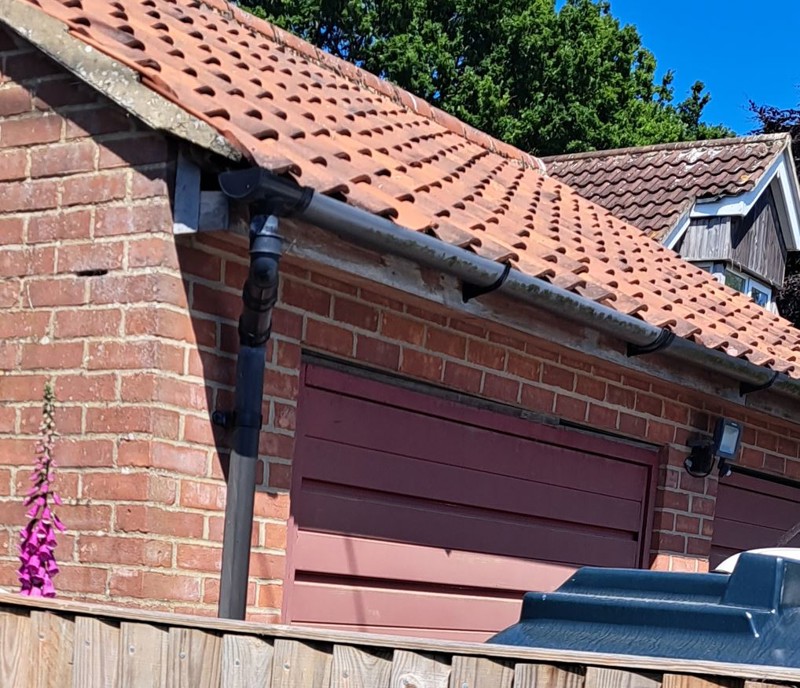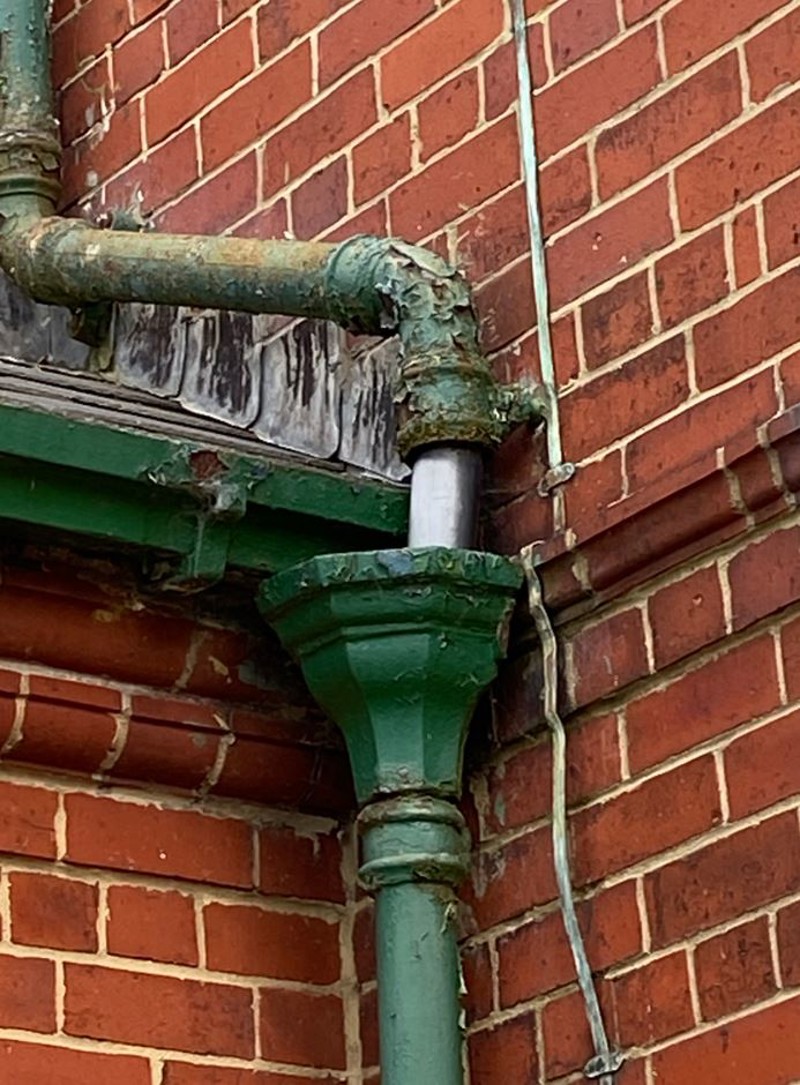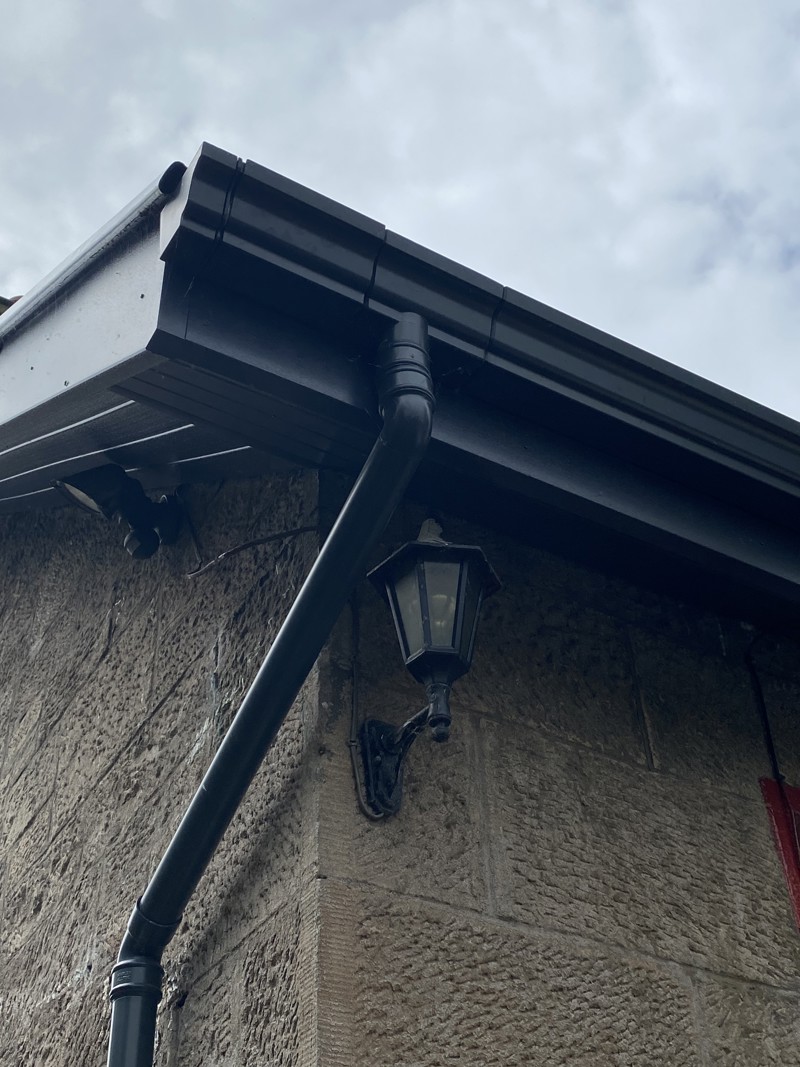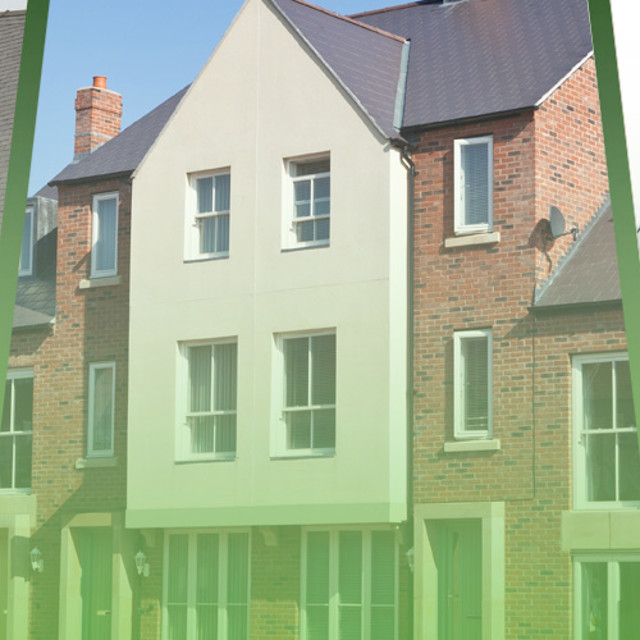Traditionally, three materials have dominated the rainwater system market – PVC, cast iron and aluminium. Here Tim Streeton, Senior Technical Services Engineer at Marley Alutec makes the case for marine grade aluminium; looking at why it can surpass the other materials in terms of performance as well as sustainability credentials.
When it comes to specifying a rainwater system, there are three key characteristics to prioritise: ease of installation, aesthetics and durability. However, for many homeowners, sustainability is now equally as important. Consequently, marine grade aluminium has grown in popularity, as its performance and environmental credentials become fully realised. Let’s look at each of the major guttering options to see how they compare.

PVC
PVC has long been a popular choice due to its light weight, which allows for a safe, easy and fast installation process, meaning trade professionals can move onto the next job quicker. PVC rainwater systems are also often the most cost effective at the outset and offer a range of design possibilities.
Nonetheless, PVC falls short when it comes to sustainability. Although it is not toxic in its finished form, manufacturing the material involves the use of hazardous chemicals such as chlorine and ethylene. Plus, it produces large amounts of dioxins.
Once installed, PVC is unlikely to deliver in terms of long-term performance. When subjected to high temperatures, the material can warp and deform permanently. Increased ultraviolet light exposure can also cause the material to discolour and become brittle, weakening the entire system. As such, PVC systems are often replaced multiple times during a property’s lifetime. At the end of its usable life, PVC can be recycled into other products, however there are only a few UK companies capable of doing so.

Cast Iron
Cast iron is a more durable and sustainable choice than PVC and is fairly resistant to weather and temperature changes. While it does not offer much design flexibility, it does create a traditional aesthetic that is suited to a range of projects, particularly heritage builds.
Unfortunately, cast iron requires regular inspection and maintenance every ten years to prevent rust or corrosion. This procedure often requires removing the gutters from the building, cleaning them with a wire brush, priming them again using a corrosive resistant primer and applying finish paint. Not only is this process time intensive, but it can also be very expensive. What’s more, cast iron is extremely heavy, meaning multiple contractors are needed to manoeuvre and hold sections in position, which also presents a number of safety risks, particularly when working at height. Finally, at the end of its working life, it is possible to recycle a cast iron rainwater system.

Aluminium
High quality aluminium harnesses all the aesthetic benefits of PVC and cast iron and also has unique qualities of its own. Firstly, it is incredibly durable thanks to a naturally occurring protective oxide coating, which means that if its surface is damaged, the material oxides again to protect itself. As such, aluminium rainwater systems require minimal maintenance and have a functional life expectancy of 50+ years, offering the ultimate ‘fit and forget’ solution. To further enhance the colour stability of the solution, a polyester powder coating can be added. If requested, this coating can be used to accurately mimic the appearance of traditional cast iron gutters and downpipes and depending on the provider, alternative colour options will also be available.
What’s more, aluminium guttering is very easy to install. It is 65% lighter than cast iron yet still incredibly strong. Aluminium systems can also be adapted onsite and fitted using standard carpentry tools meaning that any bespoke requirements can be easily met.
Finally, aluminium is one of the most sustainable building materials available, largely because it is infinitely recyclable without ever losing its quality and workability. In fact, an estimated 75% of all aluminium ever produced is still in use today.
However, it is important to note that not all aluminium is equal in terms of quality – for example, sub-standard aluminium will corrode when exposed to the elements. To maximise the advantages of the material, rainwater systems manufactured from marine-grade aluminium should be specified. Although the initial costs may be higher, its durability and minimal maintenance requirements ensure it is very cost effective in the long run.
So, it’s important to remember when faced with the standard and traditional options – that by selecting marine grade aluminium, you can ensure customers benefit from a high-quality guttering system, with the right aesthetic appeal whilst also contributing positively to the property’s environmental impact. Marley Alutec is a leading supplier of marine grade aluminium rainwater and eaves systems, which are available in an array of different RAL colour options.
For any assistance with your projects, please email us at projects@marleyalutec.co.uk or call 01234 359438.

